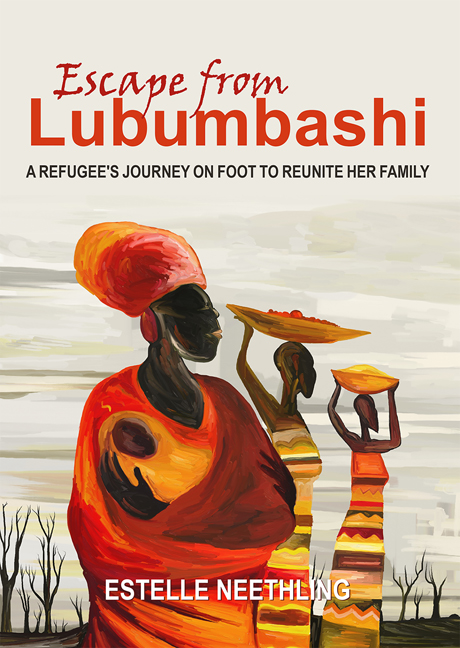Preface
Summary
The trials and tribulations of stateless Africans fleeing civil wars continue to drain international humanitarian funds. The push factors that cause people to flee are almost always equaled by the pull factors in the country of choice, South Africa, for many of the refugees. The ceaseless struggles for survival, but also courage, hope and tenacity in the face of immense adversity, are revealed in this story of Adolphine Misekabu. Her narrative echoes the experiences of many young women who fled the then Zaire at the height of Mobutu Sese Seko's despotism. Devoid of a sense of belonging and constant harassment through ‘othering’ by her host community, Adolphine poured her heart out to Estelle Neethling, who conscientiously pieced together the disjointed and fractured life history of this young woman who endured many hardships in the quest to be reunited with her husband. The heartbreaking experiences of a young mother expose how healing the broken lives of refugees has not been part of humanitarian interventions, and for South Africa where violence has been normalised, local refugee support groups have not focused on the psycho-social help needed by migrants. Adolphine's story is kaleidoscopic in that it shows the many sides of her life: the horrors she fled from Zaire, the captivating physical beauty of Cape Town, the disturbing township shacks of mostly poor blacks, and the cosmopolitan nature of the city's culture which masks the hidden anger and intense intolerance for black foreigners. The ruptures in Adolphine's life are divulged by the many derogatory names black foreigners are called all over South Africa. Estelle tells Adolphine's heart wrenching story in a way that beckons human rights defenders and humanitarian aid providers to attach a human face, a woman's life to Africa's refugee crisis.
- Type
- Chapter
- Information
- Escape from LubumbashiA Refugee's Journey on Foot to Reunite her Family, pp. viiiPublisher: University of South AfricaPrint publication year: 2021

